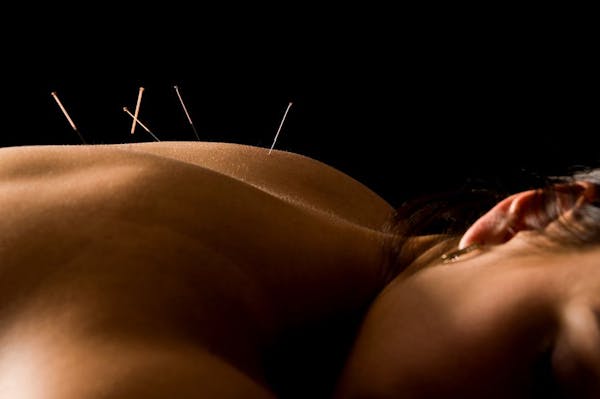
Acupuncture is based on Traditional Chinese Medicine (TCM). It is a proven medical application for centuries but has only been embraced more fully by Western medicine in recent years. Based on the practice/philosophy that each person has vital energy (“qi” or “chi”) that needs equal distribution throughout the human body, acupuncture is provided worldwide.
Acupuncture involves the stimulation of nerve endings in the body which stimulates corresponding meridians - most often by inserting thin, single-use needles through the skin where a person’s “qi” may be blocked, causing sickness or stress to restore the flow of that energy and regulate it.
What is Qi?
According to the Acupuncture Massage College of Miami Florida, the English translation of qi is a “vital life force.” The Classical Chinese Philosophy translation is much deeper: "Qi is the force that makes up and binds together all things in the universe. It is both everything and nothing."
What are meridians?
In Traditional Chinese Medicine, a meridian (Jing lou) is a channel through which qi and the other fundamental substances flow. They are non-physical networks mapped throughout the body, similar to the circulatory system in western medicine.
There are 12 major meridians existing as a yin-yang pair. Each Yin meridian (organ) is associated with a Yang meridian (viscus), as shown below:
-
- Lung (Yin) - Large Intestine (Yang)
- Stomach (Yang) - Spleen (Yin)
- Heart (Yin) - Small Intestine (Yang)
- Bladder (Yang) - Kidney (Yin)
- Pericardium (Yin) - Triple Burner (Yang)
- Gall Bladder (Yang) - Liver (Yin)
</ul
Science and Acupuncture
Acupuncture may help ease types of pain that are often chronic such as low-back pain, neck pain, and osteoarthritis/knee pain. It also may help reduce the frequency of tension headaches and prevent migraine headaches. Therefore, acupuncture appears to be a reasonable option for people with chronic pain to consider. However, clinical practice guidelines are inconsistent in recommendations about acupuncture.
The effects of acupuncture on the brain and body and how best to measure them are only beginning to be understood. Current evidence suggests that many factors — like expectation and belief — that are unrelated to acupuncture needling may play important roles in the beneficial effects of acupuncture on pain.
Conditions that May Respond to Acupuncture Treatment
Patients with a variety of diagnoses have experienced positive outcomes with acupuncture. Diagnoses we regularly treat are:
-
-
- Lower Back Pain
- Neck Pain
- Headaches
- Chronic Pain
- Osteoarthritis Related Pain
-
Cancer patients have also found acupuncture to be beneficial. Acupuncture has been effective in treating such cancer-related symptoms as:
-
-
- Chronic pain relief and reduced dependency on dangerous painkillers
- Reduced nausea and vomiting cased by chemotherapy, surgery and radiation therapy
- Positive effects on stress, depression and anxiety
- Increased appetite
- Less fatigue resulting from chemotherapy and radiation therapy
- Relief from peripheral neuropathy pain and symptoms
-
Safety and Side Effects of Acupuncture
Relatively few complications from using acupuncture have been reported. Still, complications have resulted from use of nonsterile needles and improper delivery of treatments. Rest assured that we use new, sterile needles for each and every acupuncture treatment.
